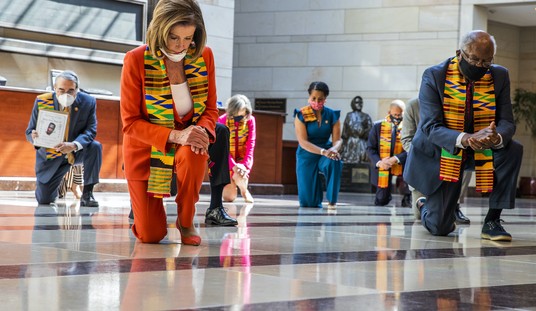This is, unfortunately, only the latest in a string of stories on this subject which go back for decades. Police departments around the country have been found to have literally hundreds of thousands of rape kits stored in evidence lockers which were never tested. (The problem was particularly egregious in Chicago but has slowly gotten better.) One of the latest studies to make waves in the media comes out of Virginia, where protests have arisen over the same lack of processing.
Many of the more than 2,000 rape kits left to languish in police departments around Virginia should have been submitted for testing but weren’t, according to an audit released this month.
The report, ordered up by the Virginia General Assembly, does not specify how many kits warranted testing. But if tested, they could yield DNA evidence that could identify rapists and solve crimes that have been unsolved for years.
These kits “clearly should have been submitted to [the Department of Forensic Science] for analysis,” the report said.
The number of untested kits and reasons given for letting them go untested underscore the challenge in prosecuting rape, which studies find is often not reported and, even when it is, can be difficult to win a conviction. Because there are no national requirements to test or catalogue rape kits, exact numbers are scarce. National estimates of untested kits range from 100,000 to four times that number.
In many – but not all – of these cases, there seems no excuse as to why they weren’t processed. This is not only a failure in doing justice for legitimate victims, but also potentially in clearing those who are incorrectly wrangled as suspects. Even beyond that, the DNA records found in some of those kits could solve many crimes other than the one currently under investigation if you manage to get a match in the database. I understand that libertarians scream about DNA record tracking, but if you’re convicted of a crime we get to keep tabs on you. So be it.
But as mentioned above, not all of the kits actually needed to be tested and there are a few reasons for that which the Virginia police point out.
Virginia’s state laboratory does not have a backlog of kits waiting for testing, said Katya Herndon, the DFS chief deputy director. Kits submitted to the department are tested, on average, in 72 days. The kits that went untested in Virginia were never submitted to the lab by local law enforcement agencies.
In more than one-fourth of the 2,369 cases documented by the report, the victim chose not to participate. In nearly 600 cases, police deemed the kit unnecessary. In 444, prosecutors declined to pursue the case. In about 250 cases, police said the complaint was false or unfounded.
One reason police gave for finding testing to be unnecessary was that a suspect had acknowledged sexual intercourse occurred — so there was no need to prove the act.
Going in reverse order, the suspect admitting that intercourse had taken place seems a slim reason to not test that kit. If nothing else, you could potentially clear some cold cases if you got lucky. A few of the other categories make sense. But even leaving aside the unsolved crime aspect of this report, there’s another number in there which both politicians and advocates probably don’t want to be batting around in the press. Did you happen to catch that last number from the report? Out of 2,369 cases, approximately 250 were tossed by the police as being “false or unfounded.” That’s more than 10% which is a fairly staggering figure in and of itself.
And for the purposes of this sample, we’re only talking about cases where a complaint was filed with the police and an investigation launched which included doing a rape test. That figure wouldn’t include cases where something was “reported” to a college committee or posted on Facebook or only highlighted by somebody carrying a mattress around on their back all year. One has to wonder what the total number really is.
Still, politics and SJW matters aside, there remains the possibility that the police in Virginia and elsewhere could be sitting on evidence which could solve countless numbers of crimes. In the Ohio investigation mentioned in the linked piece above, when they got around to testing some 7,500 kits they wound up clearing 100 cold cases. That seems like evidence enough to prove that the expense of processing them all promptly would be worth it.








Join the conversation as a VIP Member